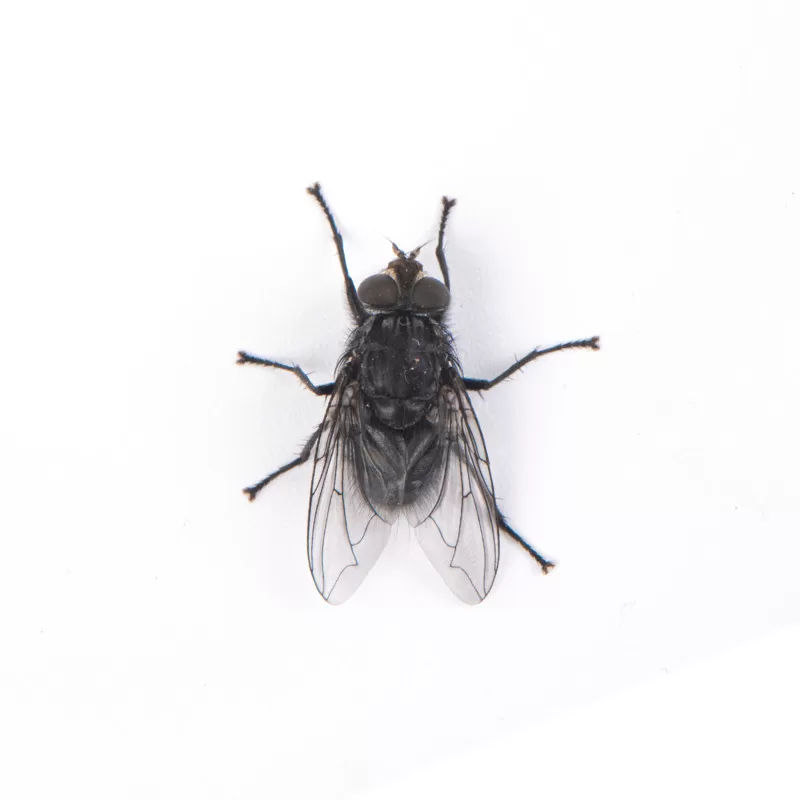-
Pest Control
With more than 8000 technicians, we are ready to protect your home.
Get a free preview -
Pest Library
With more than 8000 technicians, we are ready to protect your home.
Discover our insect library
Black flies

The Color
Black, yellow, or orange
The Size
From 2 mm to 6 mm long
The Description
Typically have large wings, an arched thorax, large eyes, and short antennae
Black flies one of many ridiculous insects that we suffer in our homes, farms, also, our plants did not safe from it. These insects are sensitive to environmental conditions, so asking a professional help like pest control company in Jeddah may help you to protect your properties from black flies’ infestations. Moreover, you can know many answers about it by browsing our website that will help you to get rid of it, but after knowing its life cycle, diet, harmful to human and pests, and its habits.
Identification of Black Flies
Black flies, also known as buffalo gnats, are small, biting insects that annoy animals and irritate people that live or work near running waters, rivers, and streams. They bite people to suck their blood. Black flies have large wings, arched thorax, short antennae, and large eyes. They range in size from 2 to 6 mm; they are black in color, but some of them are yellow and even orange.
Black Flies’ Diet
Black flies feed on nectar of flower, but females also bite people to suck a meal of blood that needed for egg development. This is most common especially they lay eggs. Females of other species feed on other birds or mammals. Black flies are an outdoor pest, so they are not venture indoors searching for blood.
Life Cycle of Black Flies
Life of black flies includes 4 stages: the stage of lay eggs, larva, pupa, and adult. All stages are related to water except the adults that leave water to search for food or mates. Black flies lay their eggs on land or water. Each female of these black flies can lay from 200 to 800 eggs during its life cycle especially on vegetation just below the water surface. Larvae emerge from eggs and attach themselves to emergent vegetation or rocks.
They will be found in large numbers near culverts, under roads or attached to plants trailing in the water. Most of black flies are known as filter feeders because they are feeding on nutrients in the water as it flows by. Larvae pass through six stages before reaching pupal stage. Pupae are covered in a silken cocoon attached to vegetation or other objects in rivers or streams. Adults emerge through a silt and float to the surface on a bubble of air after the stage of larvae. The length of stages from laying eggs to adults is variable, relying on the black fly species and the temperature of water. Adults of black flies live from two to three weeks.
Black flies’ bite and related disease
Bites of black flies are painful and often lead to skin rash and severe lymph node swelling. The insects cut into the skin to suck the blood that pools in the bite wound. The bite sometimes leads to strong allergic reactions. Although swarms of black flies are unpleasant, the pests do not spread any known human disease.
Where do they live?
Black flies breed in running water, like rivers, and streams. Adults search for moist environments. They spread in humid, wooded regions, especially in summer months, and they can be found in semitropical areas throughout year round.
Black flies are not active at night; they are most active around sunset, particularly in June and July, and they act as severe nuisances and hikers.
How we can avoid black flies’ bites?
Take the following steps to avoid black flies’ bites.
- Using insect repellent.
- Leave areas that black flies are active during the day, especially at dawn and dusk.
- Wear white colored clothes, long pants and long sleeves.
- Do not wear black clothes that may attract black flies.
To treat black flies’ bites
- Clean the bite and use topical products to reduce itching.
- Avoid scratching to reduce chances of infection.
Black flies sign and damage
Black flies do not damage plants of garden; they harm people and animals. Some species attack around the eyes, scalp, ears, sometimes arms and legs. They are also crawls into boots, neckbands to access other vulnerable places. They favorite the head. Bites can lead to swelling, pain and numbness.
They attack both people and animals using their mouthparts that like blade to cut skin to feed on blood. The pain, swelling, blood and itching after the bite is the body’s response to black fly’s saliva.
Watching black flies in air is the main sign of their infestation.
How can I get rid of black flies?
- Avoid areas of livestock and waterways.
- Using electric donators that killed flies.
- Our Pest control company in Jeddah can help you with its professional experts to get rid of black flies by using advanced technologies and modern devices. Our experts will do your foot on the main steps that help you to eliminate black flies.

What do customers say about Orchid pest control?
Orchid Pest Control is rated out of 5 based on 40 reviews as of November 2021.
All customer reviews on Google
100% money back guarantee
Solving the pest problem is our #1 priority. If re-treatment is required, we will provide immediate services at no additional cost. If your expectations are not met, we guarantee a full refund of your service payment.